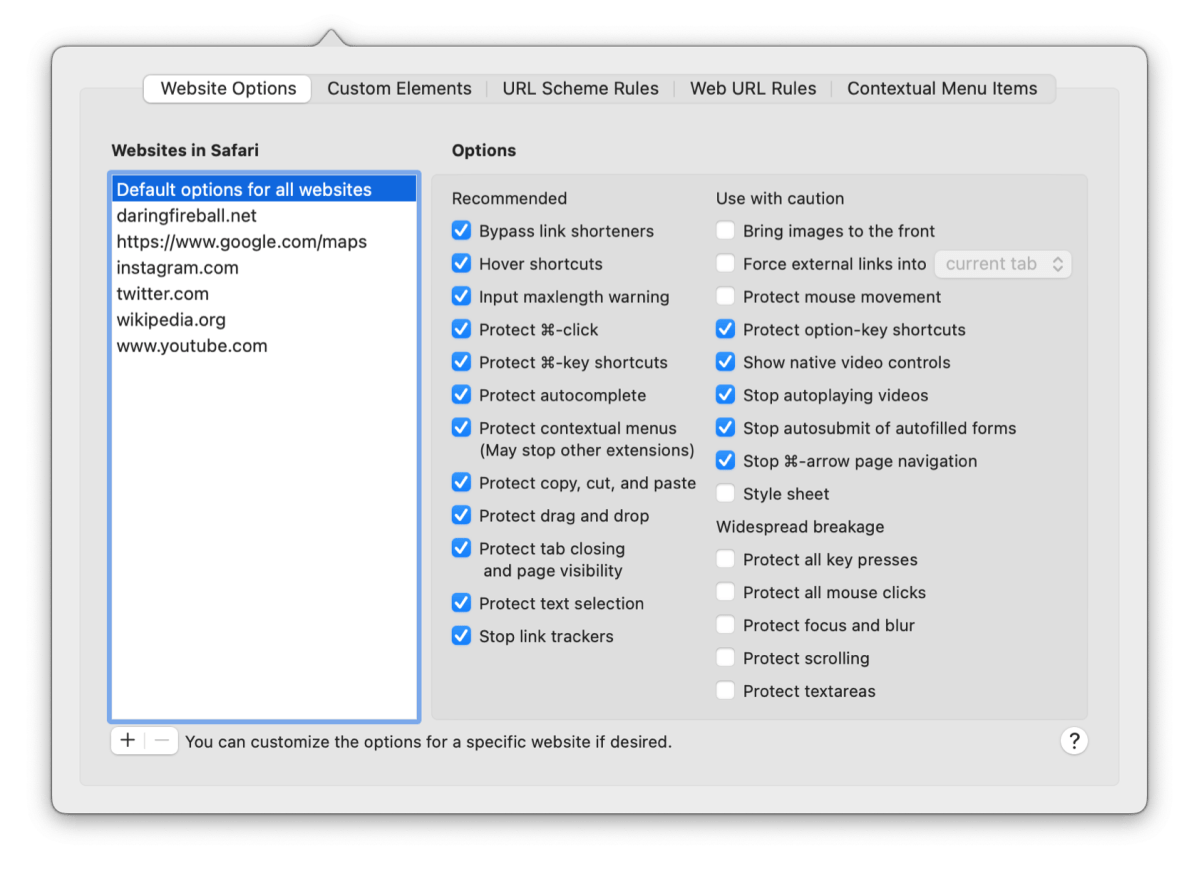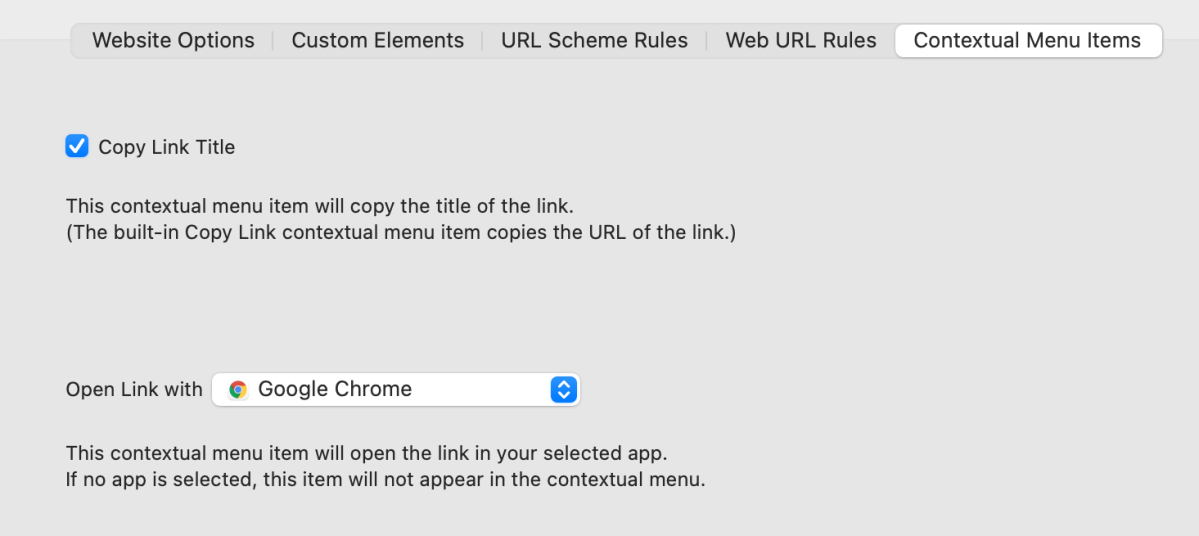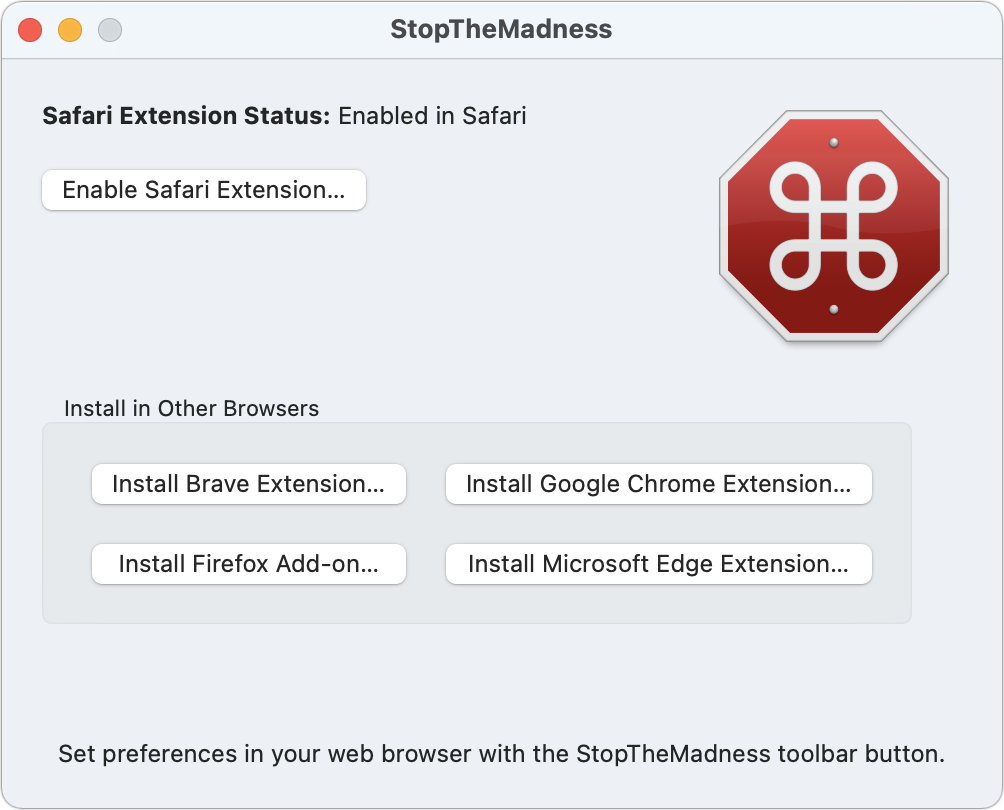
IDG
 At a glance
At a glance
Expert’s Rating
Who controls your browser, you or any random website you visit? It depends on whom you ask. If I ask the website, it says, “I can use JavaScript and other page-based features to disable many normal operations. This makes it difficult for you to use interface muscle memory, auto-fill form entries, copy text from the page, or even know why you can’t keep typing in a limited-entry field.” (Why disable all that? In many cases—maybe most cases—a misguided notion of shaping user experience.)

The browser extension StopTheMadness has a different reply: “It’s your browser and your experience, so why not let an extension put control back at your fingertips?” Purchase and install this $9.99 extension, and you can override most frustrating behavior websites try to force upon. You can incidentally block some forms of URL-based tracking.
When you visit certain sites, you might have noticed that the contextual menu (Control/right-click) becomes disabled. And other behavior is often also modified. You can’t copy and paste elements on the page. You keep typing in a field, but additional characters aren’t recognized—you’re not warned, either. You can’t select text or drag an image from a page to the Finder. Command-click doesn’t open a tab—and trying to close a tab requires you click a Safari warning to proceed. Autocomplete and auto-fill don’t work or misfire. You can use StopTheMadness’s demo page without the extension installed to witness many of these restrictions in action.

The developer is confident StopTheMadness’ default settings won’t cause problems with the browser controls it affects. The extension also displays shorter lists of ones that it might interfere with, page operations, and those that often will run into interference.
But you get to choose and can rejigger the choices that aren’t reliable. You can also add per-site settings. That can be useful if you’re not having problems generally and want to add “bad actors” as specially configured cases; or the opposite, where your choices work almost everywhere, but you need to add exceptions for some sites. If a site has its own custom contextual menu, you can hold down Option to reveal it instead of Safari’s without any special configuration.
While the extension focused on letting you seize back control of page loading and actions, it also provides a variety of methods to disable unwanted tracking via URLs and clicking. For instance, many sites use a variety of common URL shorteners to avoid revealing the kind of information they have embedded into the link to track your actions. StopTheMadness expands shortened URLs in a sandbox that avoids disclosing any information about you or your browser until the ultimate actual URL is retrieved. Your click then sends you directly to the destination. The extension also removes certain kinds of well-known tracking variables you may have seen, like utm_source, which gets around the suppression of referring URL data enabled by the increased use of secured HTTPS connections to Web servers.

StopTheMadness has a lot of nice little touches around the edges that may delight you as you discover them. One feature I can’t recall ever seeing in any other browser extension: hovering over links and using keyboard shortcuts for actions. Press Command-C while the pointer hovers over a link and StopTheMadness copies the link without “touching” it (clicking). Press Command-X and the extension deletes the underlying HTML anchor element, removing the active link from the page! You’re prompted before the deletion, to avoid an unexpected outcome.
Command-V can also be used if you enable Copy Link Title and select a browser in the Contextual Menu Items tab of the extension’s preferences. Hover over a link and press Command-V, and the link is immediately opened in that selected browser. You can also Control-click the link to reveal an Open Link with Browser Name item in the contextual menu.
You can also set specific URLs and URL patterns that should open in a different browser. You may have, as I do, some sites that break in Safari. (For me, it’s an online shipping-label printing site and my state’s health exchange site.) In the Web URL Rules tab, set the URLs you want to match and which browser they should open to whenever they’re clicked.
There’s even more to StopTheMadness—like per-site custom CSS style insertion—as the app rewards study and customization.
The StopTheMadness extension works in Safari 15 and macOS Monterey and in the Safari Technology Preview. Via the StopTheMadness standalone app, you can install it in Brave, Firefox, Google Chrome, and Microsoft Edge. StopTheMadness also comes in a separately purchasable version for Safari for iOS/iPadOS ($7.99) that has many of the same features.
The ten-dollar investment in StopTheMadness buys you a priceless amount of peace of mind. It’s an extension designed around your needs, not that of sites you visit, with the bonus of letting you switch with agility among browsers as you need for particular pages or sites.
This is StopTheMadness’s first appearance as a Mac Gem.
With the strong resurgence of the Mac in recent years, we want to celebrate the tools we use and that readers recommend to make the most of your macOS experience. Mac Gems highlights great nuggets of Mac software, apps that have a high utility, have a sharp focus on a limited set of problems to solve, and are generally developed by an individual or small company. Stay tuned for weekly updates, and send your suggestions to the Mac Gems Twitter feed (@macgems).
Note: When you purchase something after clicking links in our articles, we may earn a small commission. Read our affiliate link policy for more details.
"control" - Google News
March 04, 2022 at 06:00PM
https://ift.tt/iZSfn9V
StopTheMadness review: Be in control of your web browsing experience - Macworld
"control" - Google News
https://ift.tt/mvoL3WN
https://ift.tt/KInSNat
Bagikan Berita Ini














0 Response to "StopTheMadness review: Be in control of your web browsing experience - Macworld"
Post a Comment